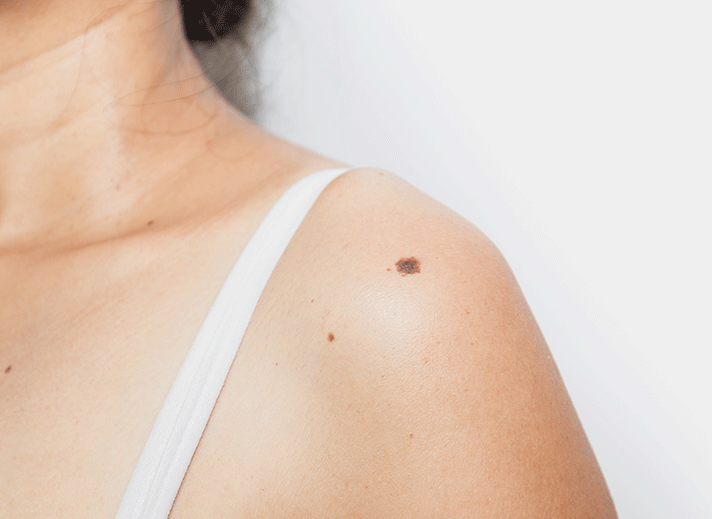Skin Cancers
One in five people will develop skin cancer in their lifetime, according to the American Academy of Dermatology. Although the risk is lower in Asians, skin cancers still do occur. Risk factors include pale skin, family history of melanoma, past history of multiple dysplastic nevi, being over 40 years old, history of repeated sun burn, and regular sun exposure. Fortunately, skin cancer is almost always curable if detected and treated early.
Which are the risk factors for skin cancers?
Risk factors include:
- pale skin
- family history of melanoma
- past history of multiple dysplastic nevi
- age above 40 years
- history of repeated sun burn or regular sun exposure
- large congenital nevus

Which are the common skin cancers?
Basal cell carcinoma (BCC)
Squamous cell carcinoma (SCC)
Melanoma
For a quick and accurate assessment, please contact Dr Wong Su-Ni at 6733 3629 or leave us a message here
How do I know if i have developed a skin cancer?
Skin cancers vary in shape, color, size and texture, so any new, changed or otherwise suspicious growths or rashes should be examined immediately by a dermatologist. Contrary to popular belief, skin cancers are usually not painful or itchy.

I have many moles. How can I tell if they are changing to skin cancer?
Those with a past history or family history of skin cancers, or other risk factors for skin cancers, are advised to examine their own skin regularly and to have regular skin checks or skin cancer screening by an accredited dermatologist.
The ABCD rule helps to identify suspicious moles:
- A - Asymmetry
- B - Border irregular
- C - Colour irregular
- D - Diameter more than 6mm or increasing
Why are regular skin checks recommended in sun-damaged skin?
Regular checks help to identify skin cancers at an early stage, before they invade or spread. Any surgery required is also less extensive if the cancer is small. Pre-malignant lesions called actinic keratosis, which occurs in sun-damaged areas and may progress to SCC, can be removed by liquid nitrogen or prescription creams to prevent progression to skin cancer.
What can I do to prevent skin cancer?
Protect yourself and your loved ones from an early age from excessive sun or UV exposure, especially sun burn and UV tanning booths. Sun protection is not just about using a sunscreen, but also involves behaviour (avoiding outdoor activities between 10am to 4pm, choosing the shade, carrying an umbrella) and covering up with appropriate fabrics (e.g. hat/cap, put on a shirt at the beach, tightly woven fabrics or high UV protection fabrics)


